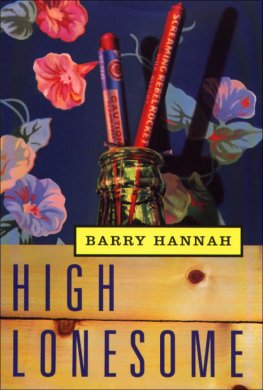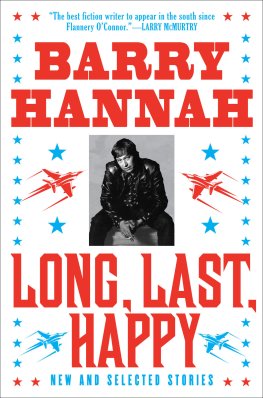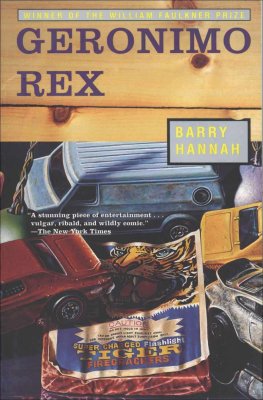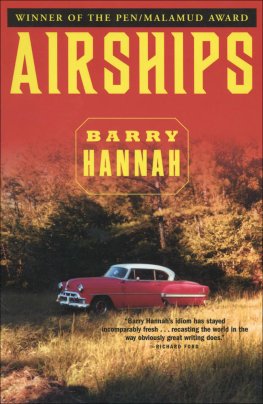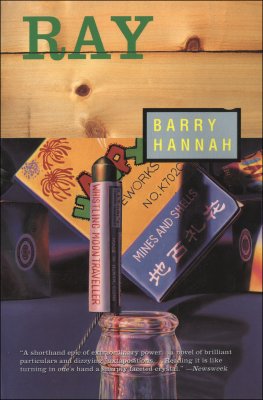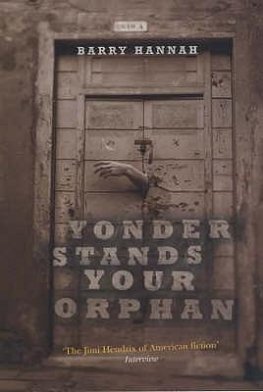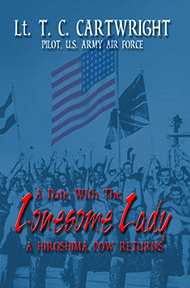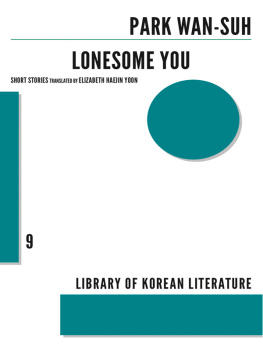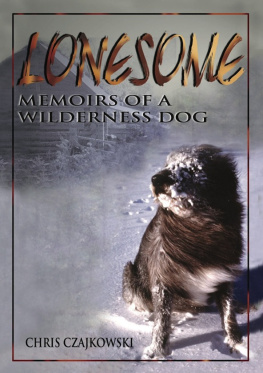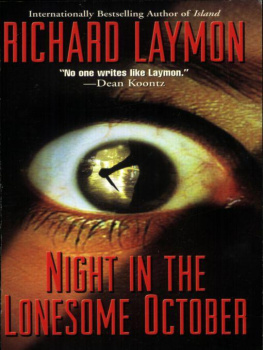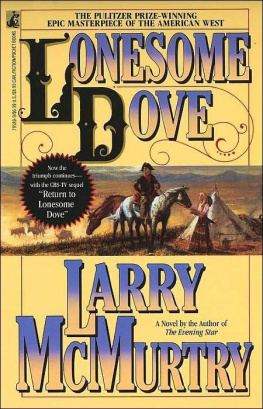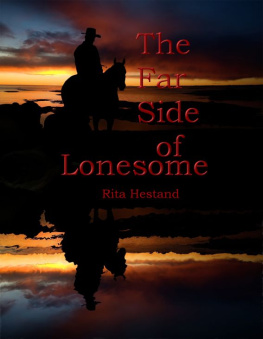Barry Hannah
High Lonesome
For Richard and Lisa Howorth
HEAVEN IS PALS
SINCE HE HAD RETURNED FROM KOREA HE AND HIS WIFE LIVED in mutual disregard, which turned three times a month into animal passion then diminished on the sharp incline to hatred, at last collecting in time into silent equal fatigue. His face was ordinarily rimmed with a short white beard and his lips frozen like those of a perch, such a face as you see in shut-ins and winos. But he did not drink much anymore, he simply often forgot his face as he did that of his wife in the blue house behind his store. He felt clever in his beard and believed that his true expressions were hidden.
Years ago when he was a leader of the Scouts he had cut way down on his drink. It seemed he could not lead the Scouts without going through their outings almost full drunk. He would get too angry at particular boys. Then in a hollow while they ran ahead planting pine trees one afternoon he was thrust by his upper bosom into heavy painful sobs. He could not stand them anymore and he quit the Scouts and the bonded whiskey at the same time. Now and then he would snatch a dram and return to such ecstasy as was painful and barbed with sorrow when it left.
This man Tuck last year stood behind the counter heedless of his forty-first birthday when two lazy white girls came in and raised their T-shirts then ran away. He worried they had mocked him in his own store and only in a smaller way was he certain he was still desirable and they could not help it, minxes. But at last he was more aggrieved over this than usual and he felt stuffed as with hot meat breaking forth unsewed at the seams. Yes girls, but through his life he had been stricken by young men too and became ruinously angry at them for teasing him with their existence. It was not clear whether he wished to ingest them or exterminate them or yet again, wear their bodies as a younger self, all former prospects delivered to him again. They would come in his life and then suddenly leave, would they, would they now? Particular Scouts, three of them, had seemed to know their own charms very well and worked him like a gasping servant in their behalf. Or so it had felt, mad wrath at the last, the whiskey put behind him.
The five boys played in the Mendenhall pool room for a few hours, very seriously, like international sportsmen in a castle over a bog, then they went out on the sidewalks mimicking the denizens of this gritty burg who stood and ambled about like escaped cattle terrified of sudden movements from any quarter. The boys were from the large city some miles north. When they failed at buying beer even with the big hairy Walthall acting like Peter Gunn they didnt much care anyway because they had the peach wine set by growing more alcoholic per second. Still, they smoked and a couple of them swore long histrionic oaths in order to shake up a meek druggist. Then they got in the blue Chevrolet Bel Air and drove toward their camp on the beach of the Strong River. They had big hearts and somehow even more confidence because there were guns in the car. They hoped some big-nosed crimp-eyed seed would follow them but none did. Before the bridge road took them to the water they stopped at the store for their legitimate country food. They had been here many times but they were all some bigger now. They did not know the name of the man in there and did not want to know it.
Bean, Arden Pal, Lester Silk, Walthall, and Swanly were famous to one another. None of them had any particular money or any special girl. Swanly, the last in the store, was almost too good-looking, like a Dutch angel, and the others felt they were handsome too in his company as the owner of a pet of great beauty might feel, smug in his association. But Swanly was not vain and moved easily about, graceful as a tennis player from the era of Woodrow Wilson, though he had never played the game.
From behind the cash register on his barstool Tuck from his hidden whitened fuzzy face watched Swanly without pause. On his fourth turn up the aisle Swanly noticed this again and knew certainly there was something wrong.
Mister, you think Id steal from you?
What are you talking about?
You taking a picture of me?
I was noticing youve grown some from last summer.
Youd better give me some cigarettes now so we can stamp that out.
The other boys giggled.
Im just a friendly man in a friendly store, said Tuck.
The smothered joy of hearing this kept the rest of them shaking the whole remaining twenty minutes they roamed the aisles. They got Viennas, sardines, Pall Malls, Winstons, Roi-Tans, raisins; tamales in the can, chili and beans, peanut butter, hoop and rat cheese, bologna, salami, white bread, mustard, mayonnaise, Nehi, root beer, Orange Crush; carrots, potatoes, celery, sirloin, Beech-Nut, a trotline, chicken livers, chocolate and vanilla Moon Pies, four pairs of hunting socks, batteries, kitchen matches. On the porch Swanly gave Walthall the cigarettes because he did not smoke.
Swanly was a prescient boy. He hated that their youth might end. He saw the foul gloom of job and woman ahead, all the toting and fetching, all the counting of diminished joys like sheep with plague; the arrival of beard hair, headaches, the numerous hospital trips, the taxes owed and the further debts, the mean and ungrateful children, the washed and waxen dead grown thin and like bad fish heaved into the outer dark. He had felt his own beauty drawn from him in the first eruption of sperm, an accident in the bed of an aunt by marriage whose smell of gardenia remained wild and deep in the pillow. Swanly went about angry and frightened and much saddened him.
Walthall lived on some acreage out from the city on a farm going quarter speed with peach and pecan trees and a few head of cattle. Already he had made his own peach brandy. Already he had played viola with high seriousness. Already he had been deep with a woman in Nashville and he wrote poems about her in the manner of E. A. Poe at his least in bonging rhymes. In every poem he expired in some way and he wanted the woman to watch this. Already he could have a small beard if he wanted, and he did, and he wanted a beret too. He had found while visiting relatives around the community of Rodney a bound flock of letters in an abandoned house, highly erotic missiles cast forth by a swooning inmate of Whitfield, the state asylum, to whatever zestfully obliging woman once lived there. These he would read to the others once they were outside town limits and then put solemnly away in a satchel where he also kept his poetry. A year ago Walthall was in a college play, a small atmospheric part but requiring much dramatic amplitude even on the streets thereafter. Walthall bought an ancient Jaguar sedan for nothing, and when it ran, smelling like Britain on the skids or the glove of a soiled duke, Walthall sat in it aggressive in his leisure as he drove about subdivisions at night looking in windows for naked people. Walthall was large but not athletic and his best piece of acting was collapsing altogether as if struck by a deer rifle from somewhere. For Walthall reckoned he had many enemies, many more than even knew of his existence.
Swanly was at some odds with Walthalls style. He would not be instructed in ways of the adult world, he did not like talking sex. Swanly was cowlicked and blithe in his boy ways and he meant to stay that way. He was hesitant even to learn new words. Of all the boys. Swanly most feared and loathed Negroes. He had watched the Negro young precocious in their cursing and dancing and he abhorred this. The only role he saw fit in maturity was that of a blond German cavalry captain. Among Walthalls recondite possessions, he coveted only the German gear from both world wars. Swanly would practice with a monocle and cigarette and swagger stick. It was not that he opposed those of alien races so much but that he aspired to the ideal of the Nordic horseman with silver spurs whom he had never seen. The voices of Nat King Cole and Johnny Mathis pleased him greatly. On the other hand he was careful never to eat certain foods he viewed as negroid, such as Raisinets at the movies. There was a special earnest purity about him.

